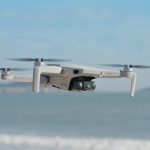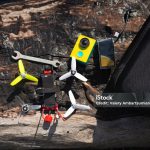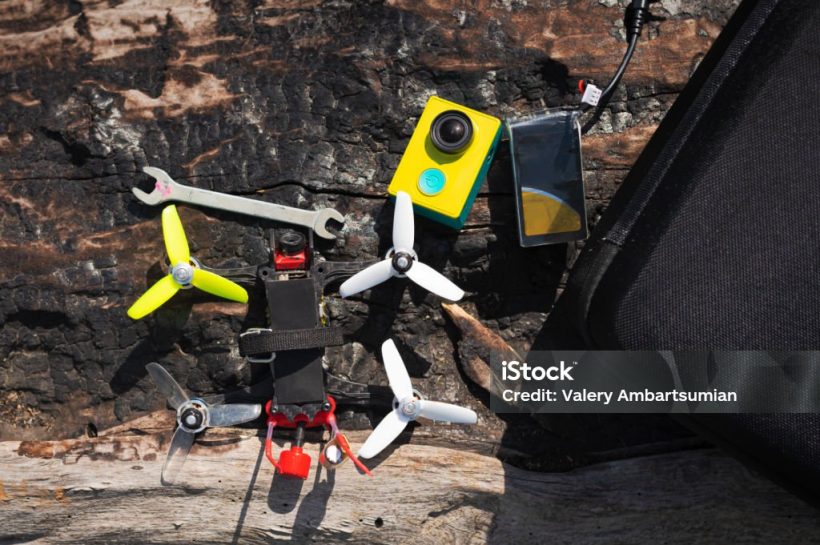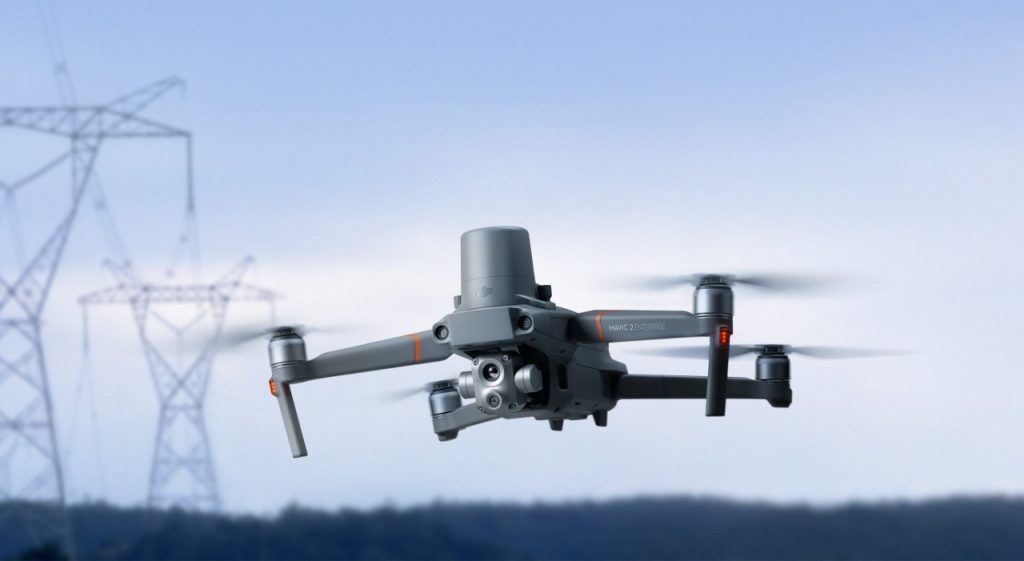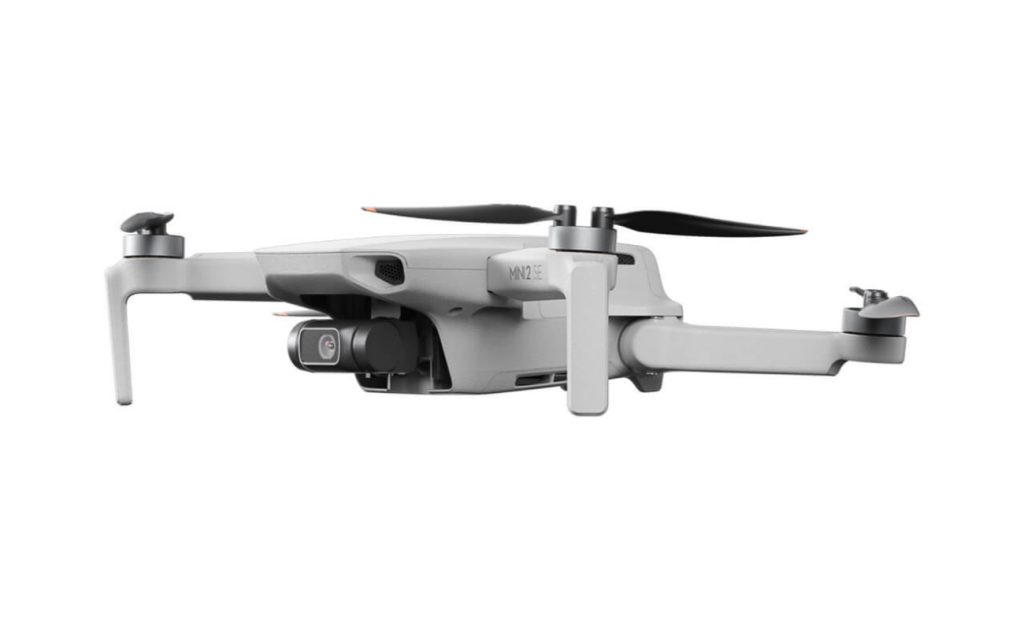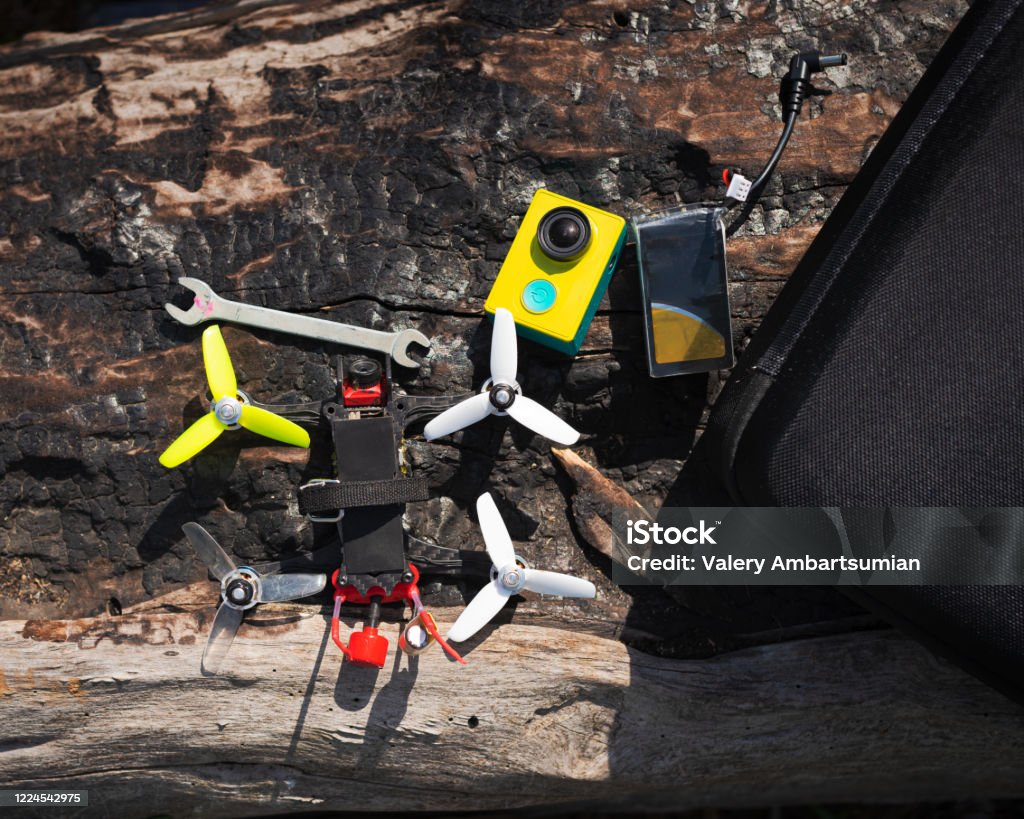The rise of drones has been a hot topic in recent years. While they can be used for recreational purposes, drones have also shown great potential for commercial use. As the technology continues to advance, it’s becoming clear that drones will play an even bigger role in various industries such as agriculture, construction, and even delivery services. While this is exciting news for the drone industry, it can also be concerning for those who are in traditional jobs that may be at risk of becoming automated. In this post, we’ll discuss the ways in which drones are changing the way we work and how you can ensure job security in this new era of technology. From upskilling to finding new opportunities in the drone industry, we’ve got you covered. So sit back, relax, and let’s navigate the drone revolution together.
Introduction to the drone industry and its rapid growth
The drone industry has experienced unprecedented growth in recent years, revolutionizing multiple sectors and creating new opportunities for professionals worldwide. From aerial photography and surveying to agriculture and search and rescue operations, drones have become essential tools in various industries.
The rapid technological advancements in drone technology have not only made these unmanned aerial vehicles more affordable and accessible but have also expanded their capabilities. With improved flight times, better camera quality, and enhanced safety features, drones are now being deployed for a wide range of applications, from monitoring infrastructure to delivering medical supplies in remote areas.
As the drone industry continues to evolve and diversify, professionals are presented with exciting career prospects in fields such as drone piloting, data analysis, software development, and regulatory compliance. Understanding the current landscape of the drone industry and its growth trajectory is crucial for individuals looking to secure their job prospects in this dynamic and fast-paced sector.
Current job opportunities in the drone industry
The drone industry is experiencing rapid growth, creating numerous job opportunities for individuals with a wide range of skills and expertise. From drone pilots to data analysts, there are diverse roles available in this dynamic field.
One of the most common job opportunities in the drone industry is that of a drone pilot. Drone pilots are responsible for operating drones safely and efficiently to capture aerial footage, conduct inspections, or assist in various projects. They require specialized training and certification to operate drones legally and effectively.
Data analysts play a crucial role in the drone industry by processing and interpreting the vast amounts of data collected by drones. They extract valuable insights that help organizations make informed decisions and improve their operations. Data analysts with knowledge of GIS (Geographic Information System) and remote sensing are particularly in demand in the drone industry.
Moreover, drone manufacturers and software developers are constantly seeking skilled professionals to design, develop, and maintain drones and drone-related technologies. Engineers, software developers, and technicians play a vital role in advancing drone technology and creating innovative solutions for various industries.
As the drone industry continues to evolve and expand, job opportunities in fields such as drone journalism, drone racing, and drone law are also emerging. Those interested in pursuing a career in the drone industry have a wide range of options to explore and can contribute to shaping the future of this revolutionary technology.
Potential challenges and job security concerns in the drone industry
As with any rapidly evolving industry, the drone sector is not without its challenges and concerns regarding job security. One of the primary challenges is the regulatory environment, which is continually changing and evolving as authorities seek to balance safety and innovation. This uncertainty can make it difficult for professionals in the drone industry to plan for the future and invest in their careers.
Another potential challenge is the increasing automation of drone technology. While automation can lead to increased efficiency and lower costs, it also raises concerns about job displacement for drone operators and pilots. As drones become more autonomous and capable of performing complex tasks without human intervention, there may be a shift in the types of skills and roles that are in demand in the industry.
Job security concerns in the drone industry also stem from competition and market saturation. As the technology becomes more widespread and accessible, the market for drone services and products becomes increasingly competitive. This can lead to downward pressure on prices and profit margins, making it challenging for businesses and professionals to sustain their livelihoods.
Despite these challenges, there are also opportunities for growth and job security in the drone industry. As the technology continues to advance and new applications are discovered, there will be a growing demand for skilled professionals who can design, operate, and maintain drone systems. By staying informed about industry trends, investing in continuous learning and skill development, and adapting to the changing landscape, individuals in the drone industry can position themselves for long-term job security and success.
Strategies for ensuring job security in the drone industry
In a rapidly evolving industry like drones, ensuring job security is crucial for professionals looking to navigate the changing landscape successfully. Here are some key strategies to help you secure your position in the dynamic drone industry:
1. Specialize in niche areas: As the drone industry continues to expand, there are numerous niche areas emerging, such as aerial photography, agriculture, surveying, and infrastructure inspection. By specializing in a particular niche, you can develop expertise and stand out in a crowded market.
2. Stay updated on regulations: Drone regulations are constantly evolving, and it’s essential to stay informed about any changes that may impact your work. By staying compliant with regulations and obtaining necessary certifications, you can position yourself as a reliable and responsible professional in the industry.
3. Invest in continuous learning: The drone industry is technology-driven and constantly evolving. Investing in continuous learning and upskilling is essential to stay competitive and adapt to new trends and technologies. Consider pursuing advanced training or certifications to enhance your skill set and stay ahead of the curve.
4. Build a strong network: Networking is crucial in any industry, and the drone industry is no exception. Building a strong network of industry professionals, clients, and organizations can open up new opportunities, collaborations, and potential job prospects. Attend industry events, conferences, and workshops to connect with like-minded professionals and expand your network.
By implementing these strategies and proactively adapting to the changing landscape of the drone industry, you can enhance your job security and position yourself for long-term success in this exciting and innovative field.
Upskilling and reskilling options for drone-related careers
In the fast-evolving landscape of drone technology, upskilling and reskilling are essential strategies to ensure job security and stay relevant in the industry. As the drone revolution continues to unfold, professionals working in drone-related careers must be proactive in acquiring new skills and knowledge to adapt to changing market demands.
Upskilling involves enhancing existing skills to meet the evolving needs of the industry. This could involve pursuing advanced training in drone technology, mastering new software applications for data analysis, or gaining expertise in specific areas such as aerial photography or surveying techniques. By upskilling, professionals can position themselves as valuable assets in a competitive job market and open up new opportunities for career growth.
Reskilling, on the other hand, may involve transitioning into entirely new roles within the drone industry or acquiring skills in emerging technologies that complement drone operations. For example, individuals with a background in aviation may choose to reskill in data analytics or artificial intelligence to broaden their career prospects in the drone sector. By diversifying their skill set, professionals can future-proof their careers and remain competitive in a rapidly changing industry.
Investing in upskilling and reskilling options, such as online courses, workshops, certification programs, or industry conferences, can provide professionals with the knowledge and expertise needed to navigate the drone revolution successfully. By staying abreast of the latest developments in drone technology and continuously honing their skills, individuals can secure their place in this dynamic and promising field.
Importance of staying updated with industry trends and regulations
Staying updated with industry trends and regulations is crucial in navigating the ever-evolving landscape of the drone industry. As technology advances and regulations change, it is essential for professionals in the field to stay informed to ensure job security and compliance with legal requirements.
By keeping abreast of the latest trends, such as advancements in drone technology, new applications for drones, and emerging market opportunities, professionals can position themselves as knowledgeable and adaptable experts in their field. This knowledge can open up new career paths, expand job opportunities, and enhance the quality of services provided to clients.
Moreover, staying informed about regulations governing drone operations is essential for maintaining compliance and avoiding legal issues. Regulatory bodies frequently update rules and guidelines for drone use, and professionals must stay current to operate within the bounds of the law.
In conclusion, by prioritizing the importance of staying updated with industry trends and regulations, drone professionals can future-proof their careers, remain competitive in the market, and ensure job security in this dynamic and fast-paced industry.
Diversifying skill sets for a competitive edge
In a rapidly evolving industry like drones, diversifying skill sets is essential for professionals to stay ahead of the curve and secure their job prospects. As the technology and applications of drones continue to expand, having a versatile skill set can provide a competitive edge in the job market.
One way to diversify skills is by acquiring additional certifications or training in related fields such as data analysis, GIS mapping, or remote sensing. These complementary skills can enhance the value you bring to potential employers and open up new opportunities in various industries that utilize drone technology.
Networking with professionals in the drone industry and attending industry events can also help in broadening your skill set. Engaging with experts and staying updated on the latest trends and innovations can provide valuable insights and inspiration for skill development.
Embracing a learning mindset and being adaptable to change are key attributes for navigating the drone revolution successfully. By continuously honing your skills and expanding your knowledge base, you can position yourself as a versatile and valuable asset in the dynamic landscape of drone technology.
Building a professional network within the drone community
Building a professional network within the drone community is essential for ensuring job security in this rapidly evolving industry. Networking with fellow drone enthusiasts, pilots, manufacturers, and industry professionals can open up a world of opportunities and keep you informed about the latest trends and developments.
Attending drone conferences, workshops, and trade shows is a great way to connect with like-minded individuals and expand your network. These events provide valuable insights into the future of the drone industry, allowing you to stay ahead of the curve and position yourself for success.
Joining online drone communities and forums is another effective way to network with professionals from around the world. Engaging in discussions, sharing knowledge, and seeking advice from experienced individuals can help you build relationships and establish yourself as a reputable figure within the drone community.
Collaborating on projects, partnering with other professionals, and seeking mentorship from industry leaders are all valuable ways to expand your network and enhance your career prospects in the drone industry. By actively engaging with the drone community, you can stay informed, inspired, and connected, ultimately ensuring your job security in this dynamic and innovative field.
Leveraging certifications and training programs for career advancement
In the rapidly evolving field of drone technology, staying ahead of the curve is essential to ensure job security and career advancement. One effective way to do this is by leveraging certifications and training programs tailored to the drone industry.
Obtaining relevant certifications such as the Part 107 Remote Pilot Certificate in the United States or the PfCO (Permission for Commercial Operations) in the UK can not only enhance your credibility as a professional drone pilot but also open up new opportunities for career growth. These certifications demonstrate your proficiency in operating drones safely and in compliance with regulations, which is crucial for gaining the trust of clients and employers.
Moreover, enrolling in specialized training programs can further enhance your skills and knowledge in areas such as aerial photography, videography, mapping, surveying, and inspection. By continuously expanding your expertise through targeted training, you can position yourself as a valuable asset in the drone industry and increase your earning potential.
In the fast-paced world of drones, investing in certifications and training programs is a strategic move to stay competitive, adapt to new technologies, and secure your place in this exciting field.
Conclusion: Embracing the drone revolution while securing your job future
In conclusion, navigating the drone revolution can be both exciting and challenging. Embracing this technological advancement while ensuring your job security is crucial in today’s rapidly evolving landscape.
As drones continue to revolutionize various industries, there is a growing demand for skilled professionals who can operate, maintain, and innovate in this field. By staying informed about the latest trends and advancements in drone technology, you can position yourself for success and long-term job security.
Investing in continuous learning and upskilling, obtaining relevant certifications, and networking within the drone community can help you stay ahead of the curve and adapt to the changing demands of the industry. Furthermore, exploring new opportunities to leverage drones in innovative ways can open up new career paths and ensure your relevance in the job market.
By embracing the drone revolution with a proactive mindset and a focus on continuous improvement, you can not only secure your job future but also thrive in this dynamic and promising field. Remember, the key to success lies in embracing change, adapting to new technologies, and seizing opportunities for growth and development in the drone industry.
As we conclude our exploration of navigating the drone revolution and ensuring job security, it is evident that embracing technological advancements is key to staying relevant in today’s ever-evolving job market. Drones are revolutionizing industries and creating new job opportunities, but they also pose challenges to traditional roles. By upskilling, adapting to change, and leveraging the potential of drones, individuals can secure their positions and thrive in this dynamic landscape. Remember, the future is bright for those who are willing to embrace innovation and adapt to the changing tide.
